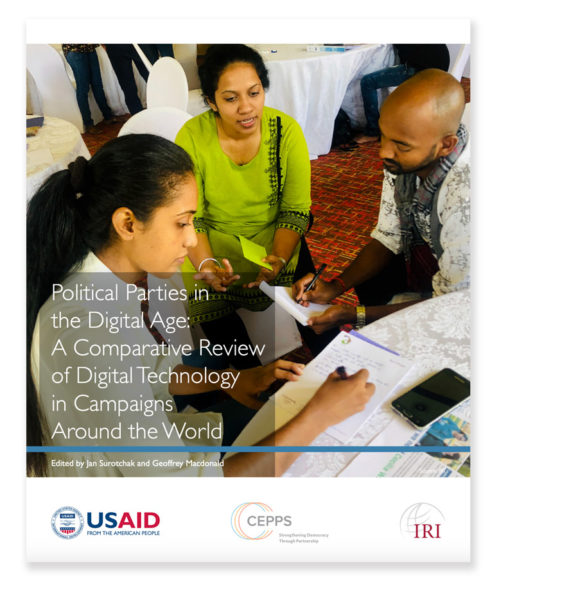In most Western democracies, political parties have increasingly used digital technology during campaigns. From mobilizing voters to organizing volunteers, new technologies – such as smartphones and tablets, and innovative internet platforms and applications (“apps”) like Facebook, Twitter, WhatsApp, Snapchat, Periscope, and others – have revolutionized election campaigns. No longer are mass mailings, lawn signs, and television and radio advertisements sufficient to win an election. A campaign’s “digital strategy” is just as, if not more, important to victory. However, it is less clear how digital technology has affected political campaigns in the developing world. Many countries outside of the West lack open political environments and widespread digital infrastructure, which are vital conditions for a party’s ability to use technology.
Democracy assistance providers focus on building the capacity and effectiveness of political parties in new and struggling democracies. Considering the increased relevance of digital technology in campaigns, this study focuses on how and why parties do or do not use digital tools in challenging environments, and illuminates both the impediments facing parties and the successful tactics available to them.
How parties use technology to:
APPROACH
In collaboration with political party support and development organizations in targeted countries, CEPPS compares political party experiences in adapting to this new environment by:
DELIVERABLE

Political Parties in the Digital Age:
A Comparative Review of Digital Technology in Campaigns Around the World
The final, published product informs democracy and government implementers about political party use of technology in case study countries and on wider regional trends. In addition, it outlines both effective and ineffective digital strategies for political parties in budding democracies across the globe.